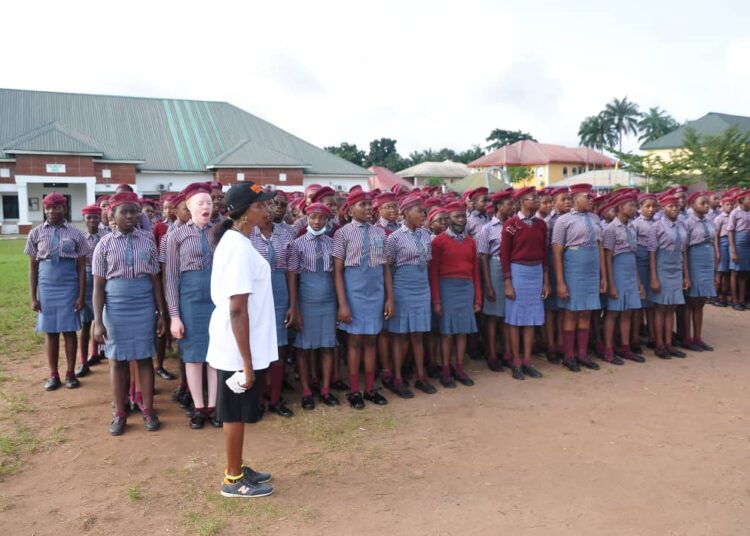As the world celebrates the International Day of the Girl Child, the AIDS Healthcare Foundation (AHF) Nigeria has renewed calls for greater investment in girls’ health, education, and empowerment — with a strong emphasis on combating HIV and ending period poverty.
To mark the global day, AHF Nigeria held an educational and empowerment event at Community Commercial Secondary School, Ikot Oku Ubo, Offort, in Uyo, Akwa Ibom State, on October 10. The event brought together students, civil society organisations, and government officials in a collective effort to protect adolescent girls from health risks while promoting leadership and self-confidence.
The program featured sessions on menstrual hygiene management, leadership development, and comprehensive sexuality education. Students and out-of-school girls also made creative presentations on their vision of what “girls deserve,” with outstanding contributions receiving awards and gifts.
In addition, AHF distributed free sanitary pads — both reusable and disposable — and connected adolescent girls to mentorship opportunities within Akwa Ibom State.
Dr. Echey Ijezie, Country Program Director of AHF Nigeria, said the initiative reflects the foundation’s commitment to addressing the unique challenges faced by young girls in Nigeria.
“At AHF Nigeria, we are particularly concerned about the challenges adolescent girls face — lack of access to education, poor menstrual health management, gender-based violence, and limited access to sexual and reproductive health services,” Ijezie said. “These issues expose many young girls to health risks, including HIV.”
Despite global progress, AHF noted that adolescent girls and young women continue to bear a disproportionate share of new HIV infections. Every week, an estimated 4,000 young women aged 15–24 become newly infected, with more than 3,300 of those cases in sub-Saharan Africa.
In 2023 alone, 1.9 million adolescent girls and young women were living with HIV — significantly higher than their male counterparts. Education gaps also persist, with about 133 million girls worldwide currently out of school.
AHF’s Uyo event was organised in collaboration with several partner organisations, including the Civil Society for HIV/AIDS in Nigeria (CISHAN), the Centre for Clinical Care and Clinical Research in Nigeria (CCCRN), and the Excellence Community Education Welfare Scheme (ECEWS). The Akwa Ibom State AIDS and STIs Control Programme (SACP) and the State Ministry of Women Affairs, led by Commissioner Hon. Inibehe Silas, also participated in the event.
Dr. Ijezie emphasised that empowering girls through education, mentorship, and access to healthcare is key to curbing gender inequality and achieving the UN’s health and development goals.
The International Day of the Girl, observed annually on October 11, celebrates the achievements of girls worldwide and amplifies calls for policies that protect their health and future.
Through its Girls Act program, AHF supports adolescent girls and young women in nearly 40 countries with the knowledge, tools, and resources to stay HIV-free, adhere to treatment, stay in school, and avoid unplanned pregnancies.
“When girls are educated, healthy, and empowered, they change the trajectory of their communities,” Ijezie added. “Our mission is to ensure every Nigerian girl has the opportunity to thrive.”





